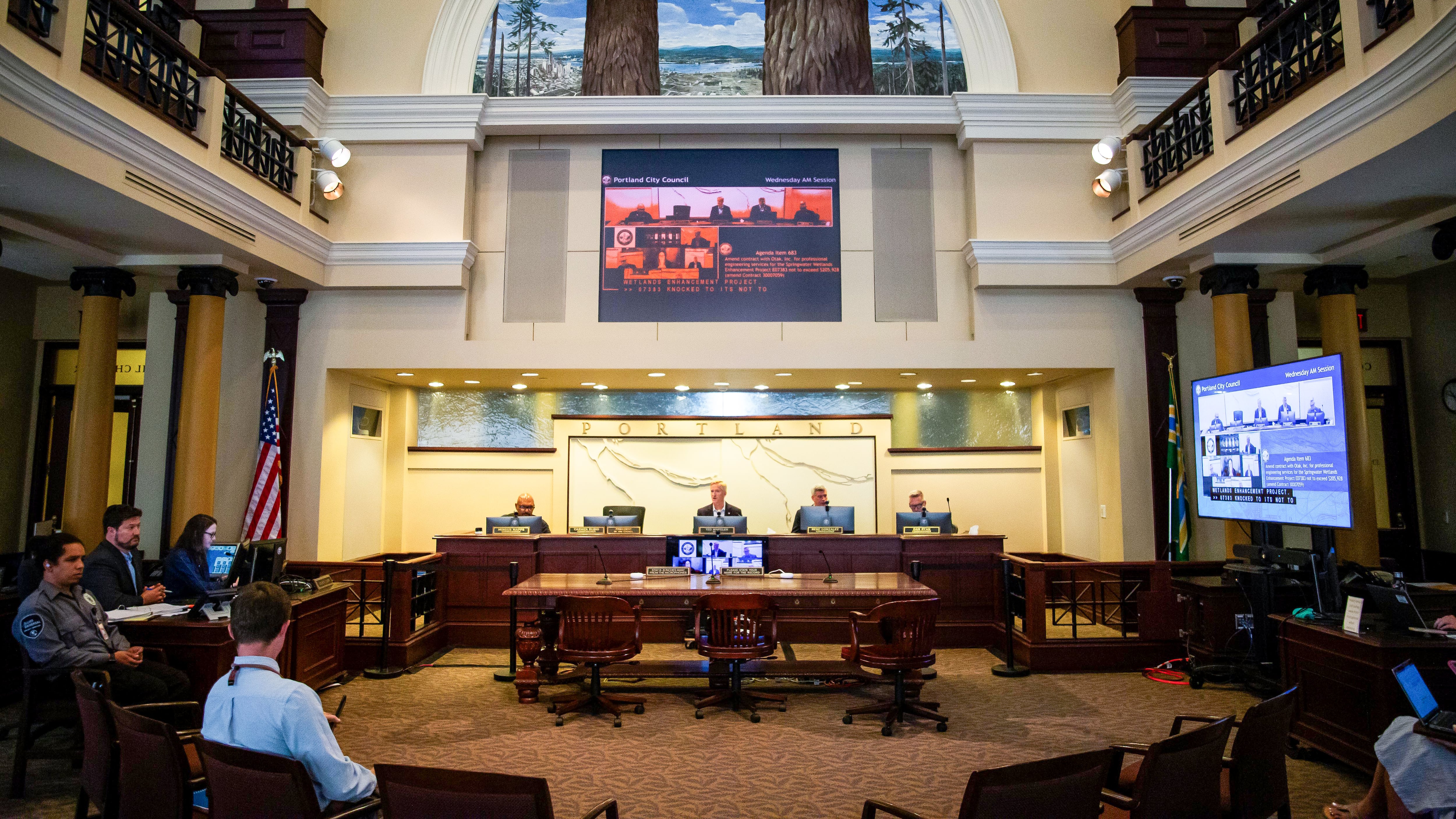The Portland Elections Commission voted Wednesday evening to limit how much the city’s Small Donor Elections program, which matches small campaign contributions with taxpayer dollars up to a 9 to 1, can give to candidates in the mayoral race and the 12 City Council races this year before it turns off the faucet.
The Elections Commission voted to limit mayoral race matches to $100,000 and to reduce the City Council match limit by 60%, lowering it to between $40,000 and $120,000, depending on how many small donors contribute to a candidate. The limits approved on Wednesday night will not lower the city’s match rates, which can be up to 9 to 1, depending on the size of the contribution. (The smaller the contribution, the more the city multiplies it with taxpayer dollars.) The changes only limit the total amount the city can give any candidate in matching funds. Under the new limits, when a mayoral candidate reaches $100,000 in matching funds from the city, the city stops matching any further contributions.
The decision to limit how much a candidate can receive from the city’s match program comes after 2022 charter reform boosted the number of elected offices from six (four city commissioners plus the mayor and city auditor) to 14 (12 city councilors plus a mayor and auditor).
In 2022, Portland’s Small Donor Elections program matched small contributions to candidates by up to 9 to 1. But, as WW first reported this fall, city elections officials worried that its budget couldn’t support all 14 city races taking place in 2024. That fear came true with voter approval of charter reform, so officials decided to figure out what reductions to make to ensure that candidates who raised money more quickly wouldn’t drain the program’s budget.
Last fall, program director Susan Mottet asked for more money from the City Council so the program could maintain previous match limits for candidates—$750,000 for mayoral candidates and up to $300,000 for City Council candidates—but the City Council has offered no such funding yet.
The Elections Commission had to vote on match caps before Feb. 1, the date matching funds start to flow to candidates. If the City Council does increase the program’s budget, the Elections Commission will revisit match limits and could adjust accordingly. The program is asking for an additional $5.7 million above and beyond its typical annual budget.
If the budget hike is granted later this year, Mottet says, “the match limit reductions would be modest—not so severe as to undermine the purpose of the program.”
If the City Council increases the program’s budget later this year and the Elections Commission increases match limits, Mottet says any small contributions that went unmatched because candidates reached their limit would be retroactively matched.
The Elections Commission mulled various possibilities Wednesday night. It initially looked keen to reduce the mayoral race match limit to $50,000 and lower the City Council match limit by 50%. But following a long discussion, the body voted to cap mayoral race matches at $100,000 per candidate and reduce the match limit by 60% for candidates in City Council races.
Already, 40 candidates have filed paperwork with the city to run for City Council.
